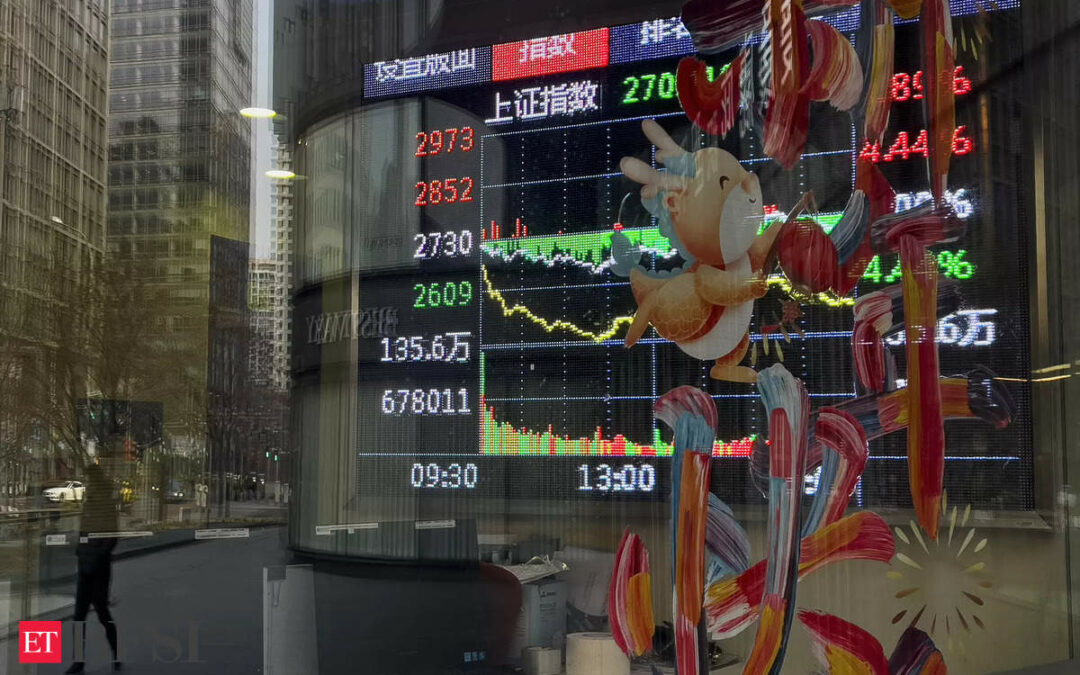London : China may see its first yearly outflow from equities in 2024 — but if and when it happens, investors won’t know from exchange data.
That’s because the country’s stock exchanges will stop releasing daily data on overseas fund flows starting Monday, depriving investors of a key sentiment indicator to track the $8.3 trillion market.
The change, first hinted at in April, comes as foreign funds have steadily withdrawn from the market, taking the year-to-date tally to negative as of Friday. Analysts saw the move as another effort by authorities to prop up the market, hoping to reduce volatility induced by high-frequency data and turn investor focus to longer-term indicators.
“Beijing stopped the release because the data hasn’t been looking good, and it’s volatile,” said Xin-Yao Ng, director of investment at abrdn Asia Ltd. “They probably don’t want the data to amplify capital outflows” but “it doesn’t solve the root of the problem,” he added.
If the selling persists, China may see the first annual outflow from its stock market since 2016, when Bloomberg began tracking purchases through the trading links with Hong Kong. With the absence of data, investors will have to rely on the central bank’s quarterly reports on financial assets held by overseas entities for an indication. Those are subject to a lag and measure the value of outstanding equities held by foreigners through broader channels, rather than flows.
The CSI 300 Index has fallen more than 9% since a May peak as a hoped-for earnings recovery failed to materialize and policy support fell short. Down 2.5% for 2024, it’s at risk of extending losses into a record fourth year and trails the around 13% gains inJapan’s Topix Index and India’s Nifty 50 in local-currency terms.
Stocks have flopped even with massive purchases by state funds, with estimates that they plowed the equivalent of $66 billion into exchange-traded funds this year. There’s little sign that an economic recovery is afoot. The latest data showed a surprise slowdown in fixed-asset investment and a softening in industrial production.
Global funds will find more reasons to shun China in the run-up to the US presidential elections, as anti-Beijing rhetoric and unfavorable trade measures are expected to gather pace.
“Market sentiment stagnates as more disappointing macro prints are released and policy easing remains reactive,” Morgan Stanley analysts including Laura Wang wrote in a note Thursday. “We expect market volatility to remain relatively high and advise positioning more defensively in the near term.”
The latest decision followed an end to disclosing data on intraday flows through the trading links in May. Last year, China asked fund houses to stop displaying real-time estimates of mutual fund products’ net value.










